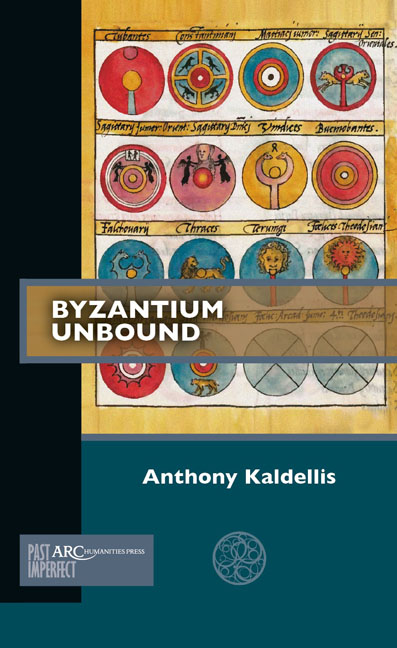Chapter 1 - A History of Byzantinophobia
Published online by Cambridge University Press: 20 November 2020
Summary
What things are called is incomparably more important than what they are. The reputation, name, and appearance, the usual measure and weight of a thing, what it counts for— originally almost always wrong and arbitrary, thrown over things like a dress and altogether foreign to their nature and even to their skin—all this grows from generation unto generation, merely because people believe in it, until it gradually grows to be part of the thing and turns into its very body. What at first was appearance becomes in the end, almost invariably, the essence and is effective as such.
Nietzsche, The Gay Science 2.58 (trans. W. Kaufmann)For a civilization that did relatively little harm, prized humility and compassion, preserved its existence and integrity against overwhelming odds, and contributed in captivating ways to the diversity of human culture, Byzantium is oddly one of the most maligned and misunderstood civilizations of the past. Its greatness and true nature were buried under so many layers of western prejudice, polemic, and deceit that for centuries only an invidious caricature was visible from outside. Westerners who actually visited it were just as likely to come away amazed by it as to have their prior prejudices confirmed, and even after its fall one could see through some of the distortions, at least with the benefits of scholarly training. But over time more coats of prejudice were added on rather than stripped away. As late as the mid-twentieth century, Byzantium was encased like an onion in multiple layers of hardened distortion, each dating from a different period of western imagination, fantasy, and politics. Only in the previous generation has a systematic effort been mounted to peel these stereotypes away, though the effort has been partial, is often uninspiring, and has sometimes added to the problem.
It is unnecessary and even hard to get personally worked up about this injustice. Arguably no one is directly harmed by it today, and there are too many pressing problems in the world that deserve our outrage, including lethal racism, neo-feudal economic inequality, the erosion of free society, and the fact that we are wrecking our only habitat in the universe. Nevertheless, you, the reader, would not be starting this book unless you were interested in Byzantium and what it means to us.
- Type
- Chapter
- Information
- Byzantium Unbound , pp. 1 - 28Publisher: Amsterdam University PressPrint publication year: 2019

